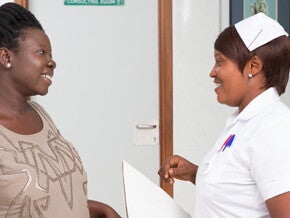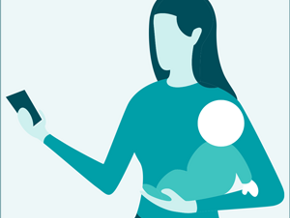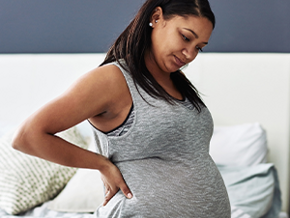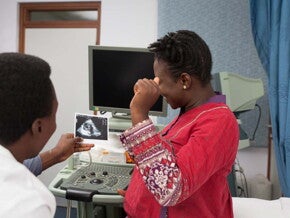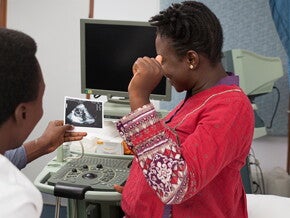
Pregnancy and dietary considerations
Pregnancy is exciting, exhilarating and totally different for every woman.
Below is a list of some common pregnancy concerns plus some positive action steps you can take that might help make your pregnancy all it can be.
Cravings
Though no one really knows why they occur, countless moms have had them, for everything from watermelon and chocolate to chilli sauce on ice cream.
Action steps for when you have a craving:
- Don’t judge them – they are a normal part of pregnancy!
- Keep your portions reasonable and maintain an otherwise healthy diet.
Morning sickness
Nausea and vomiting are the plight of many moms-to-be, especially in the first trimester. The cause is unknown and may be due to hormonal changes or lower blood sugar during early pregnancy. As the name suggests, it often occurs in the morning but can strike at any time of the day!
Tips to put into action to help manage morning sickness:
- Eat frequent, small meals.
- Think nutritious foods but in a snack-portion size.
- Your sense of smell may be heightened when pregnant, so avoid potential triggers like food with strong aromas, perfume and cigarette smoke.
- Go for mild flavours over spicy.
- Have a small snack at bedtime and upon waking, such as dry toast, crackers or fruit.
- Take your prenatal multivitamin with or after food.
- For severe nausea, talk to your healthcare professional.
Constipation
Pregnancy hormones relax your intestinal muscles and slow the movement of food through your intestine. Your baby is also putting pressure on your intestines, slowing down the process even more.
Act on these simple remedies that may help to get things moving again:
- Drink plenty of fluids every day including water, decaffeinated tea, prune juice, milk and soups. Vegetables and fruits with lots of moisture—like celery, berries and watermelon— can also help.
- Eat more fibre-rich foods such as fruits, vegetables, and whole grains.
- Exercise, such as regular walks, can help keep food moving!
Leg cramps and swelling
Leg cramps are very common during pregnancy however it is not known what exactly causes this. A feeling of heavy legs, ‘pins and needles’ edema (severely swollen ankles) results from extra fluid in the tissues of your body. If you have these symptoms there is no harm in talking to your healthcare professional about them and to adopt some good habits.
Tips:
- To combat cramps, massage the affected area to provide some relief. Stretching may also help with pain relief.
- Wear comfortable shoes to help with swollen feet or ankles.
- Put your feet up whenever you can. Try to keep them elevated above the level of your heart. Sleep with your legs slightly raised (using a pillow). This can help circulation.
- You may need to wear support stockings (your healthcare professional can provide you with a prescription or recommendation).
If the swelling is concerning you, discuss with your healthcare professional.
Heartburn
Heartburn—a burning sensation in the middle of your chest—can occur because your baby’s weight is pushing on your stomach and intestines. Because stomach acids are squeezed into the esophagus and the muscle at the bottom of the esophagus relaxes, it creates the uncomfortable burning sensation we know as “heartburn.”
See if these dietary changes can help to ease your heartburn:
- Eat smaller meals more frequently and eat slowly.
- Avoid greasy and spicy foods.
- Try to wait at least an hour after you eat before lying down.
Check with your healthcare professional before taking any over-the-counter antacids or tablets.
Being vegetarian
Vegetarian and vegan diets are safe during pregnancy if they’re well planned with high-quality proteins and a good balance of whole grains, fruit, vegetables and healthy fats.
Follow-up with these additional action steps:
- Ask your healthcare professional for a prenatal multivitamin containing Vitamin B12, Vitamin D, Folic Acid, Iron, Calcium and Zinc.
- Let your healthcare professional know if you are (or are planning to become) vegetarian or vegan.
High blood pressure
Your healthcare professional may speak to you about your blood pressure. Gestational hypertension (high blood pressure that occurs during pregnancy) requires the attention of your healthcare professional.
Before becoming pregnant:
- Try and make some small lifestyle changes, including limiting salt intake, staying active and looking to reduce your weight if overweight.
Throughout your pregnancy:
- Try to keep to the recommended rate of weight gain.
- Routine monitoring will occur under your healthcare professional's supervision at your regular prenatal check-ups
- If any concerns arise, your healthcare professional will do more extensive monitoring and testing
Having more than one
Having twins or other multiples means needing more calories. Discuss with your healthcare professional what your energy and nutrient requirements will be.




